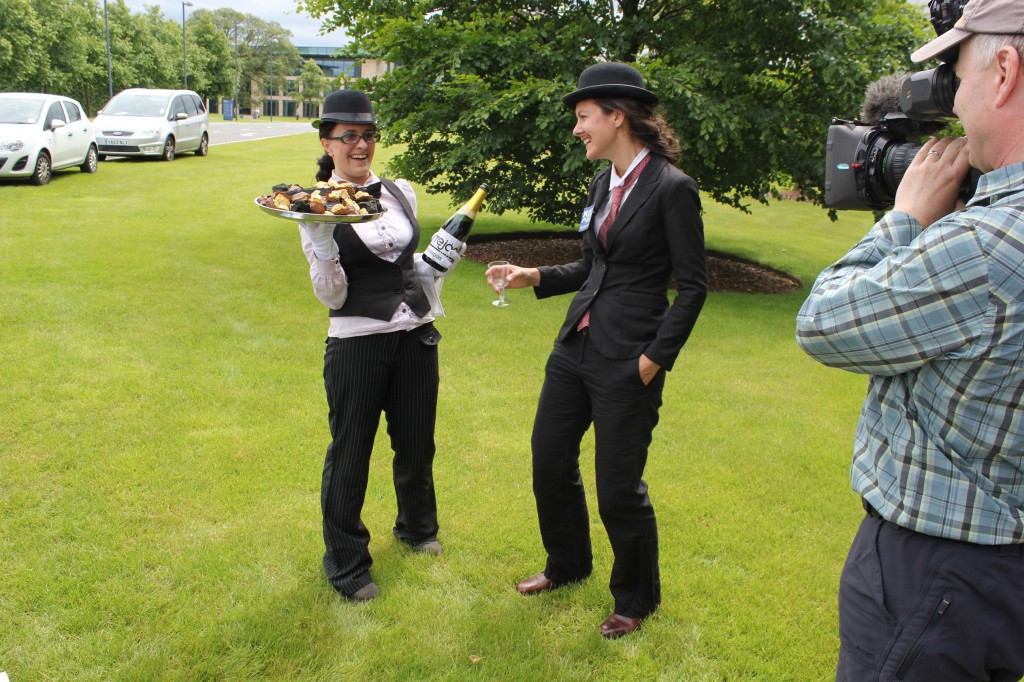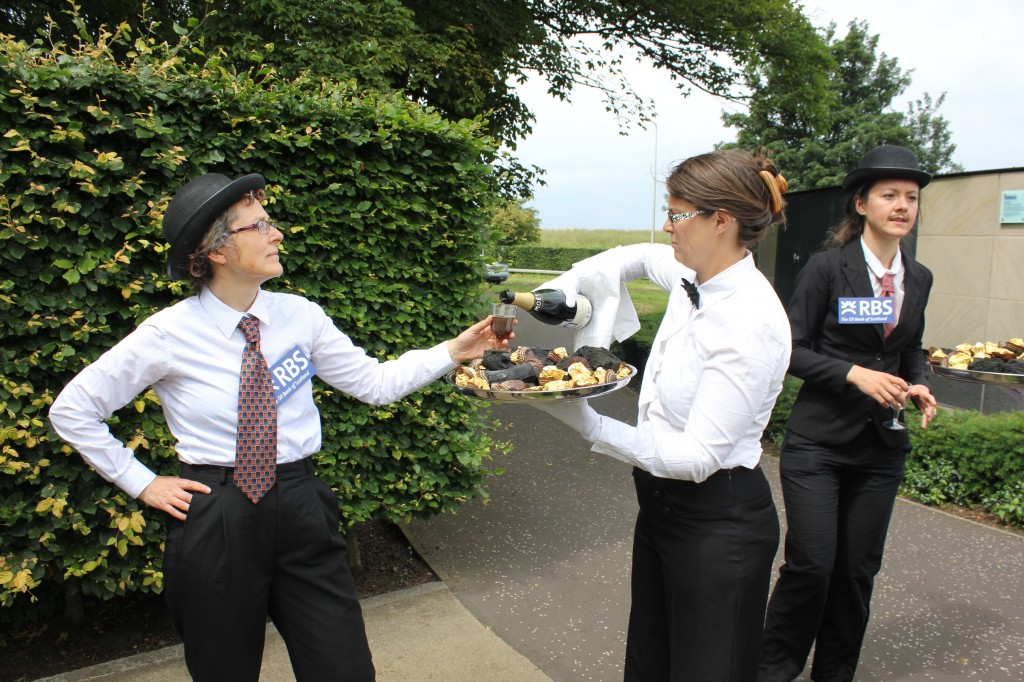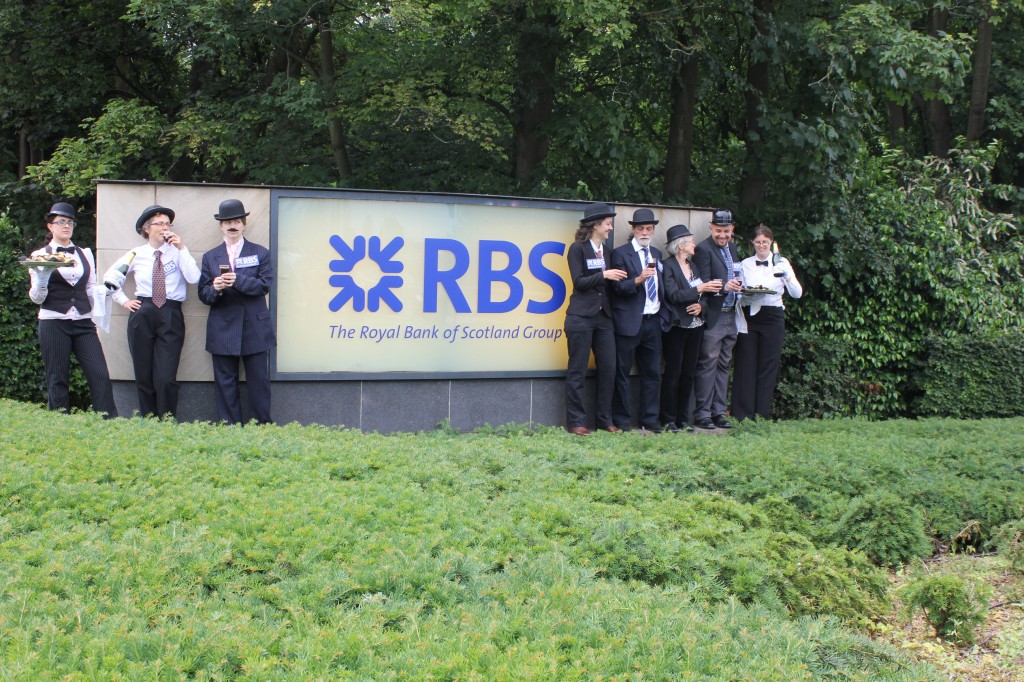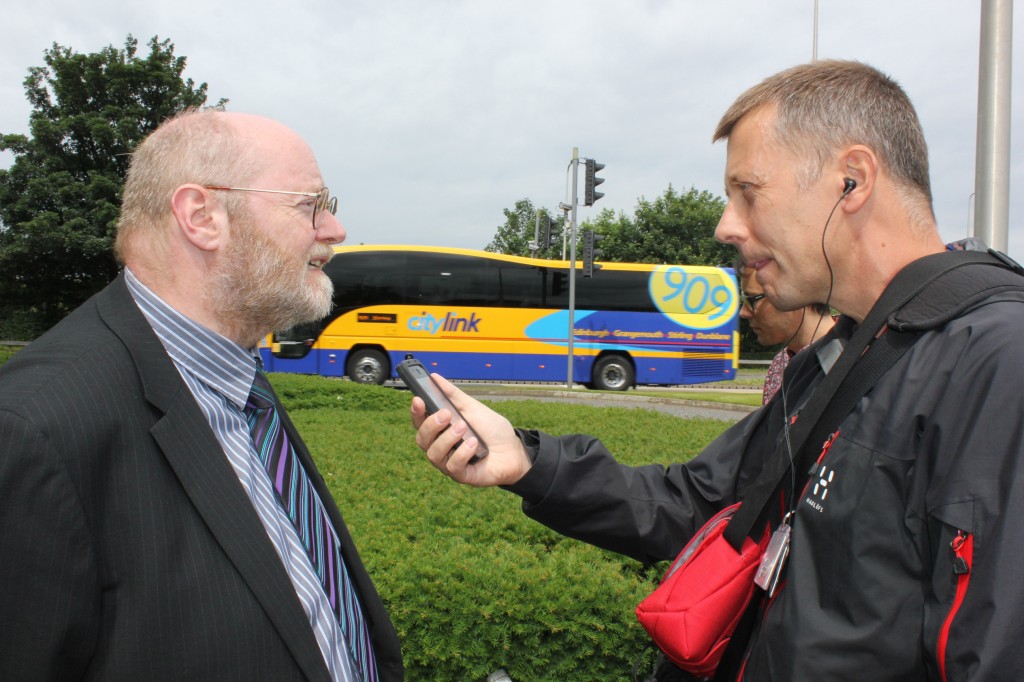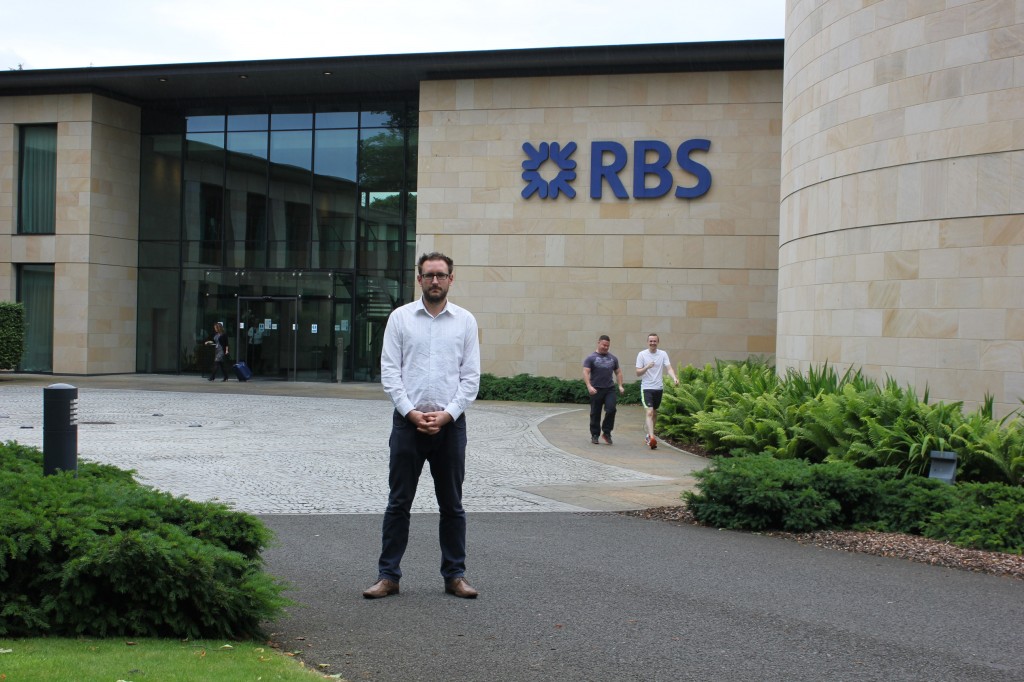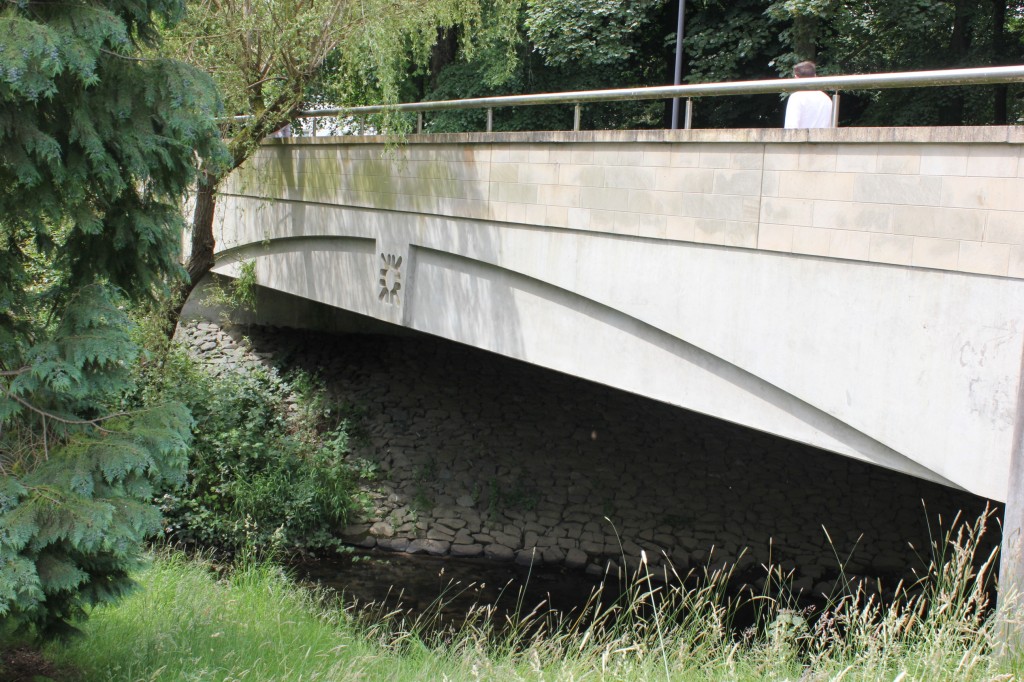RBS’s annual general meeting was more placid than usual
June 26th, 2014
The Royal Bank of Scotland, which last year made losses of £8.2 billion, held its annual general meeting yesterday. The shareholders’ gathering was a slightly calmer affair than some of the recent ones I have attended. Held at the bank’s sprawling, campus-style “world headquarters” at Gogarburn, near Edinburgh – itself a monument to the hubris of former chief executive Fred Goodwin – it was attended by less than 100 shareholders. Maybe most of its investors have concluded that the rogue institution is just impervious to criticism, or else have somehow been convinced that it has mended it ways.
Aside from the interventions of Gavin Palmer, who accused RBS chairman Sir Philip Hampton of covering up for the “corporate psychopaths” and financial terrorists inside the bank’s global restructuring group, and Joel Benjamin, of Move Your Money, who grilled the chairman about RBS’s alleged “misselling” of rip-off LOBO loans to local authorities and urged the board to embark on an open and transparent review of its activities in this area, you never really felt the bank’s board was being put on the spot or necessarily even squirming in their seats.
Before the event started at 2pm, a group of environmental protesters gathered at the main vehicular entrance to RBS’s Gogarburn campus.
They were seeking to highlight the bank’s position as one of the leading worldwide funders of coal mining. From both Friends of the Earth Scotland and the World Development Movement UK, their overall aim was to persuade the RBS board to pull the bank’s money out of coal.
Dressed as waiters and bankers, the protesters handed out lumps of coal disguised as luxury chocolates (“Fossil Rochers”) and held placards saying “RBS out of coal”. The World Development Movement claims that RBS invests more in coal mining worldwide than any other UK bank and is the third biggest investor in coal extraction in the world. When asked about this during the annual general meeting by the WDM’s Alex Scrivener, Hampton disputed the claims, saying that funding coal-mining was “not a major part of our portfolio” and was diminishing.
Friends of the Earth Scotland’s director Richard Dixon was interviewed near the A8 dual carriageway by the BBC Scotland environment correspondent David Miller. In a pre-published release, Dixon said:
“Despite being owned by the people, investments in coal show RBS is not serving its public function. A truly sustainable banking sector can only work on smaller scales with more democratic control. Breaking up RBS could help us reach this goal.”
Joel Benjamin, of Move Your Money (pictured above), sought clarity from Hampton of the subject of rip-off LOBO loans. At the meeting, Benjamin said RBS had sold such loans, which contain embedded derivatives to get around a 1990s ban on the trading of derivative products by local authorities, at “obscenely high rates of interest” (once teaser rate periods have expired) to both local authorities and housing associations.
Benjamin said one local authority, the London Borough of Newham, refused to divulge details of its contract with RBS after a Freedom of Information request, claiming the bank had demanded it withhold the information. When Benjamin asked “did the bank request that FoI be denied?” Hampton said: “I have no knowledge of anybody doing that.”
At the meeting, shareholder Lynn McMillan asked Hampton why “obscenely large bonuses are still being paid to bankers”, and why EU regulation appeared so “toothless”. Hampton said that “the structure of pay and bonuses contributed to the financial crisis” as bankers had pursued short-term goals for personal gain and that RBS had “had its full share of that”. He added that compensation in the financial industry “got out of line with the underlying performance of the business.”
After this mea culpa he added, “I think we’ve done more structurally to address the wrong ways of paying people,” noting that total bonuses at RBS have fallen by 60% in the past four years and by 75% in its investment banking arms. Top talent had to be paid competitively, insisted Hampton pointing out that RBS chief executive Ross McEwan had already waived a bonus.
The bank’s remuneration policy was supported by about 99% of voting shareholders, including UK Financial Investments, which manages the UK government’s 81% stake in the bank.
In its full-year results for 2013, RBS said it would pay employees £576 million in bonuses for 2013, down from £679 million in 2012. Investors also backed the removal of the dividend access share, which gives the government priority over pay-outs. It will cost the bank about £1.5bn to buy itself out of the scheme.
Hampton said last year’s loss of £8.2 billion was largely caused by “customer redress, fines or other litigation costs whether from PPI, swaps, Libor, US mortgages and so on,” before adding, “the issues that have arisen were simply not foreseen.”
Both Hampton and McEwan warned of further branch closures claiming that the rise of online banking and mobile apps meant that some branches are now barely used. Hampton said: “While online and mobile transactions have grown by 232% since 2011, branch transactions have declined by around 30%. With continued rapid change in the way people choose to bank, there will inevitably be further closures.” He said that RBS would still have more branches than Sainsbury’s and Asda stores combined and treat any closures sensitively.
Even the bridges at Gogarburn, a complex built at a cost of more than £350 million in 2002-05, are branded with the Royal Bank of Scotland’s “cow’s arse” logo.
Short URL: https://www.ianfraser.org/?p=10629

